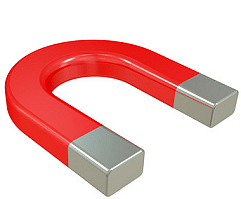Test: Electricity and Magnetic Effect of Current - CTET & State TET MCQ
30 Questions MCQ Test - Test: Electricity and Magnetic Effect of Current
Electrons are __________ particles.
Which of the following materials is a conductor?
| 1 Crore+ students have signed up on EduRev. Have you? Download the App |
Electromagnet loses its magnetic property when
Which one is a magnetic material?
Which is an example of an insulator
Which of the following is not a magnetic substance?
The end of a free hanging magnet which point towards North is called
How many terminals are there in a dry cell?
Filament of electric bulb is made up of
When two or more cells are joined together, it forms a
A device which prevents or allows the current to flow through it
Which types of magnet have two poles close to each other?
Magnetic effect of electric current was observed by
To prevent electric shocks, the metallic electrical wires are covered with
Magnet was first discovered about 5000 years ago in the rocks of
The property of attracting iron or other magnetic materials is called
Magnetic strength of the magnet is
Electric current is said to pass through a wire when
A substance which allows electricity to pass through it is called
The material that attracts iron is


















